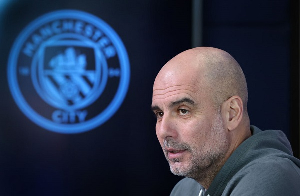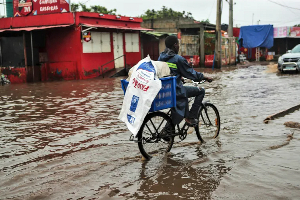H.E. Mr. Isaac Osei, Ghana’s Envoy to the UK has stressed the need for the United Nations to cater for the needs of countries left behind by the fast process of globalisation if it was not to lose its moral authority and legitimacy.
Mr. Osei made the observation at a lecture he delivered on “The future of the UN and Africa” at a meeting organised by the United Nations Associations of Blackheath and Greenwich, Lewisham Refugee network and Refugee Council in London.
The lecture which was attended by Professor Christopher Akumfi Ameyaw, Minister of Ports, Harbours and Railways while in London on official duty, drew hundreds of members of the UNA in and around the communities.
He said a future UN that was not collectively tackling the challenges of environmental degradation, drug trafficking, refugees, human rights and good governance; illiteracy, ignorance and disease would have failed to live up to its goal of promoting human development.
Similarly, he said, “a future UN Security Council that does not reflect within its permanent membership a category of new and important centres of economic power, as well emerging regional powers from developing countries of the world”, could not adequately address the new and old security threats.
Mr. Osei pointed out that the UN, in the new millennium, should endeavour to overcome the threat of creeping irrelevance and called on “African countries to be part of the solution in a way that enhances their sovereignty, security status as well as the prosperity and dignity of their people.”
High Commissioner Osei observed that Africa was not only “a scar on the conscience of mankind” as stated by British Prime Minister, Mr. Tony Blair, but a “festering sore that needs healing”.
The challenge facing Africa, he noted, was how “to encourage the international community to refocus attention on problems of the region and to put them on the front burner.”
He indicated that despite the dictates of realpolitik there had been some positive developments at the United Nations on African issues.
He pointed to the current UN Medium – Term Plans (2002 – 2005), the endorsement of the New Partnership for Africa’s Development (NEPAD), the appointment of a Special Adviser on African affairs, the struggle against colonialism and apartheid, the maintenance of peace, peace-keeping missions in Africa as examples of these developments.
Mr Osei however admitted that the high visibility of Africa or the increased periodicity of matters dealing with Africa on the agenda of the United Nations could not be said to be adequate since neither had matched the expectations of African countries nor lessened the gravity of problems facing the continent.
He, noted, nonetheless, that Africa’s situation would probably have been worse without the United Nations.
To maximise the benefits accruing to the continent from the United Nations, Mr. Osei made a number of recommendations of what Africans themselves could do and what the UN ought to do.
He said African permanent representatives to the UN should engage all major parties through bilateral and multilateral channels and ensure the strengthening of the Office of the Special Adviser for Africa.
Mr Osei called on African countries to explore ways of supporting and strengthening African countries, which represent group interests in various African bodies and organise to ensure their success.
On issues at the General Assembly, Mr. Osei advised that African countries should arrange to be represented where a subject of direct importance was being discussed and called for delegation of spokespersons to speak on behalf of the whole region on issues of common interests.
With regard to the Security Council, Mr. Osei called for clearer articulation and definition of African issues and a mechanism of co-ordination among Africans countries themselves to ensure that their common interests were clearly defined. He said a system should be put in place to ensure effective follow up of Security Council decisions affecting or relating to Africa.
Considering that Africa makes up a third of the United Nations, he said, “serious deliberations have to take place to give Africa two permanent seats on the Council.”
Mr Osei said the successful implementation of NEPAD principles would help eradicate poverty and place African countries on the path of sustainable growth and development, and called on the UN to mobilise resources for the benefit of the people.
At the end of the presentation, High Commissioner answered questions from the floor relating, among other things, on democratic changes sweeping the continent.
In one of his responses, the High Commissioner explained that “Africans have now come to accept that any change in the leadership process should be effected through the ballot box and not through the barrel of a gun.”
General News of Thursday, 26 June 2003
Source: Ghana High Commission, London
UN must cater for the needs of the less developed
Entertainment











